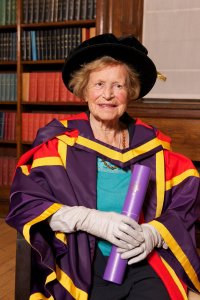Researchers from the University of Oxford, the University
of Limerick, and the Harvard School of Public Health have developed a
mathematical model to examine online social networks, in particular the
trade-off between copying our friends and relying on ‘best-seller’ lists.
The researchers examined how users are influenced in the
choice of apps that they install on their Facebook pages by creating a
mathematical model to capture the dynamics at play. By incorporating data from
the installation of Facebook apps into their mathematical model, they found
that users selected apps on the basis of recent adoptions by their friends
rather than by using Facebook’s equivalent of a best-seller list of apps. The
model suggests users tended to be swayed by recent activity—from their
`friends’ on Facebook—that they saw on their Facebook feeds over the previous
couple of days. The research, published in the journal, Proceedings of the
National Academy of Sciences, finds that the “copycat” tendency in human
behaviour is strong and that we can be influenced by the activities of others
over a relatively short period of time.
The mathematical model examined data from an empirical
study published in 2010, which had tracked 100 million installations of apps
adopted by Facebook users during two months. In the 2010 study, based on data
collected in 2007, all Facebook users were able to see a list of the most
popular apps (similar to best-seller lists) on their pages, as well as being
notified about their friends’ recent app installations. In the 2010 study
(which included two of the authors of the new study), researchers found that in
some cases, a user’s decision to install some apps seemed virtually unaffected
by the activities of others, whereas sometimes they were strongly affected by
the behaviour of others – even though the apps in these two categories did not
appear to be distinguished by any particular characteristics. Instead, once an
app reached some popularity threshold (as measured by the installation rate),
its popularity tended to rise to stellar proportions.
In the new study, the researchers developed a
mathematical model to distinguish between the consequences of two distinct,
competing mechanisms that appeared to drive the dynamics behind the behaviour
of the Facebook users. Using their model and extensive computer simulations,
they looked behind the empirical data to see whether Facebook users’ behaviour
could be modelled as being influenced primarily by the notifications of apps
recently installed on their friends’ Facebook pages or mainly driven by which
apps appeared on the best-seller list. Using the supercomputers of the Irish
Centre for High-End Computing (ICHEC), the researchers ran thousands of simulations
in which they varied the relative dominance of the two influences (recent
installations versus cumulative popularity). It took the researchers 15,000
hours of computer processing to best match the results of the simulations with
the characteristics of app installation that were observed in the earlier
empirical study.
The researchers found that, although users seem to be
influenced by both, the stronger effect on popularity dynamics was caused by
the recent behaviour of others.The best-seller list did have a ‘mild’ effect on the
behaviour of Facebook users, but an instinct to copy the behaviour of others
was by far the more dominant instinct.
Associate Professor Felix Reed-Tsochas, James Martin
Lecturer in Complex Systems at the Said Business School and Director of
Complexity Economics at the Institute for New Economic Thinking at the
University of Oxford, said: ‘We have used sophisticated modelling techniques to
show how it is possible to tease apart different causal mechanisms that
underpin behaviour even when the empirical data are purely observational. This
is significant because the assumption these days is that only experimental
research designs can provide such answers. Here, we found that the “copycat”
tendency plays a very important role in online behaviour. This might be because
users need to make quick decisions in information-rich environments, but other
research has identified similar imitative behaviour in the off-line world.’
Professor James Gleeson, from the Department of
Mathematics and Statistics at the University of Limerick, said: ‘This study
reveals how we can explore different scenarios using mathematical models to
disentangle what drives people to behave the way they do using large data sets
from the real online world. This opens up lots of new possibilities for
studying human behaviour.’
Commenting on the significance of the method behind the
study, Associate Professor Mason Porter, from the Mathematical Institute at
University of Oxford, said: ‘We hope that our paper can help serve as a guide
for modelling complex systems and how data can be incorporated directly into
such modelling efforts. The importance of mathematical modelling often seems to
be lost amidst the overabundance of empirical studies, and I cannot stress
enough that mathematics is also crucial to help illustrate how things work.’
The other authors of the new study were Dr Davide Cellai
(University of Limerick) and Assistant Professor Jukka-Pekka Onnela (Harvard).
For more information see the PNAS webpage, and contact the University of Oxford
News and Information Office on:
+44 (0)1865 280534 or email: @email
NOTES FOR EDITORS
*The paper, ‘A simple generative model of collective
online behavior’, by James P Gleeson. Davide Cellai, Jukka-Pekka Onnela, Mason
A Porter and Felix Reed-Tsochas will be published by Proceedings of the
National Academy of Sciences (PNAS).
*The data used by the research team contains no
information about individuals, and only information about individual
applications, so there are no implications in terms of the privacy of
individual Facebook users.





